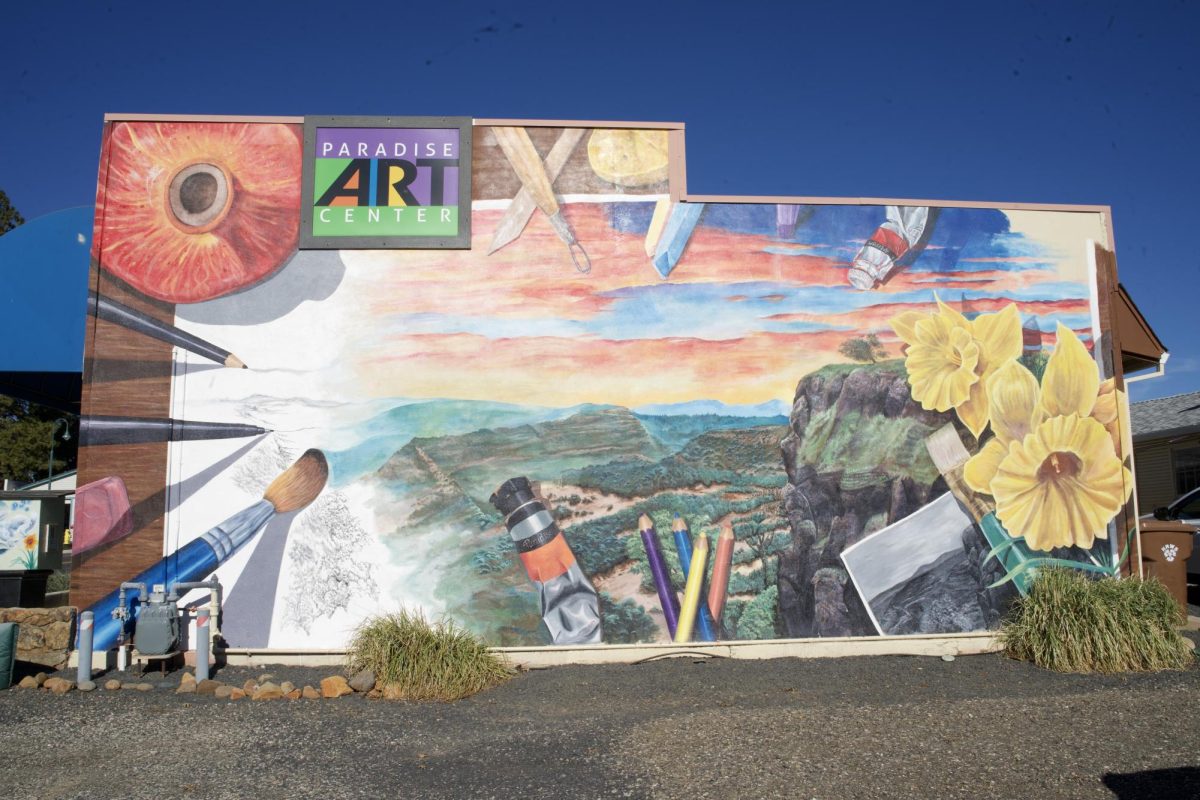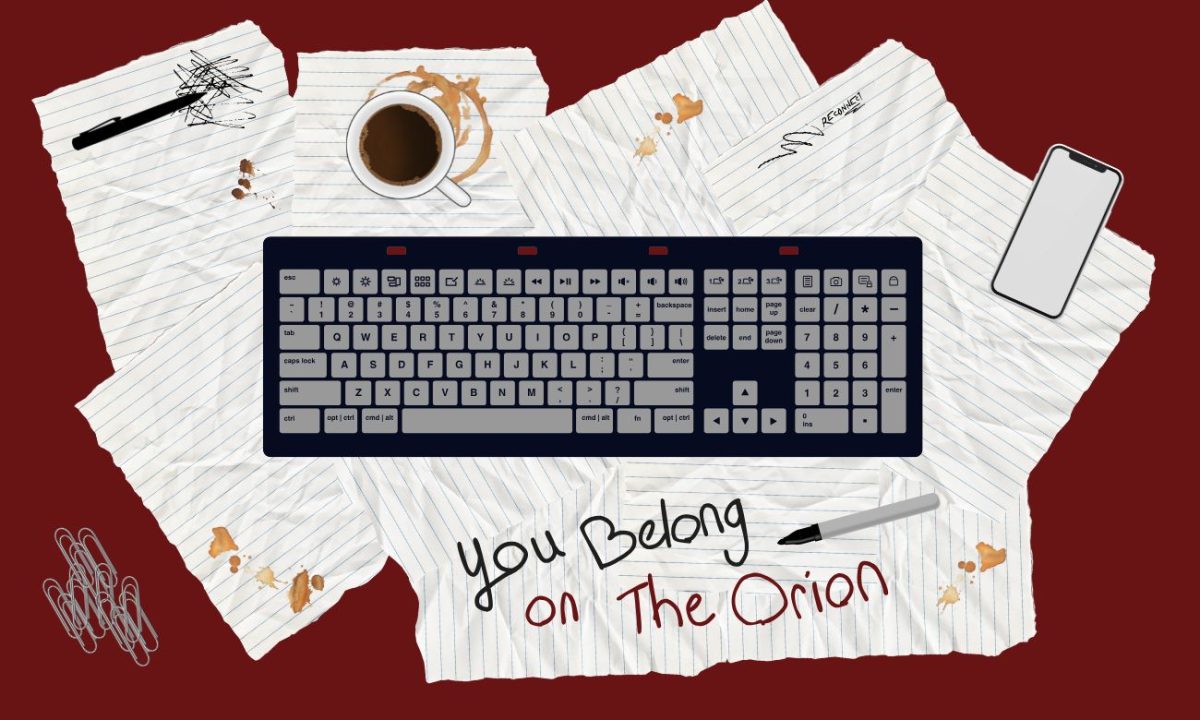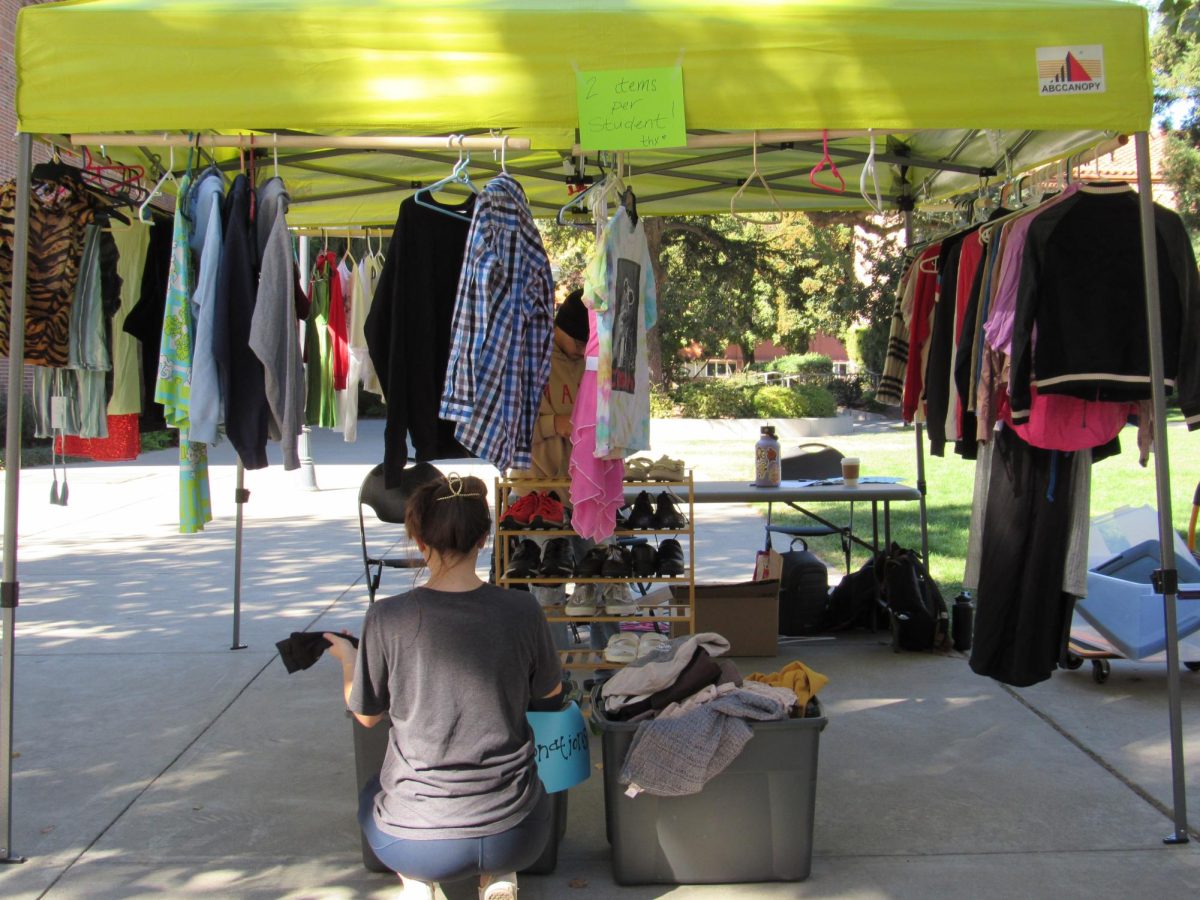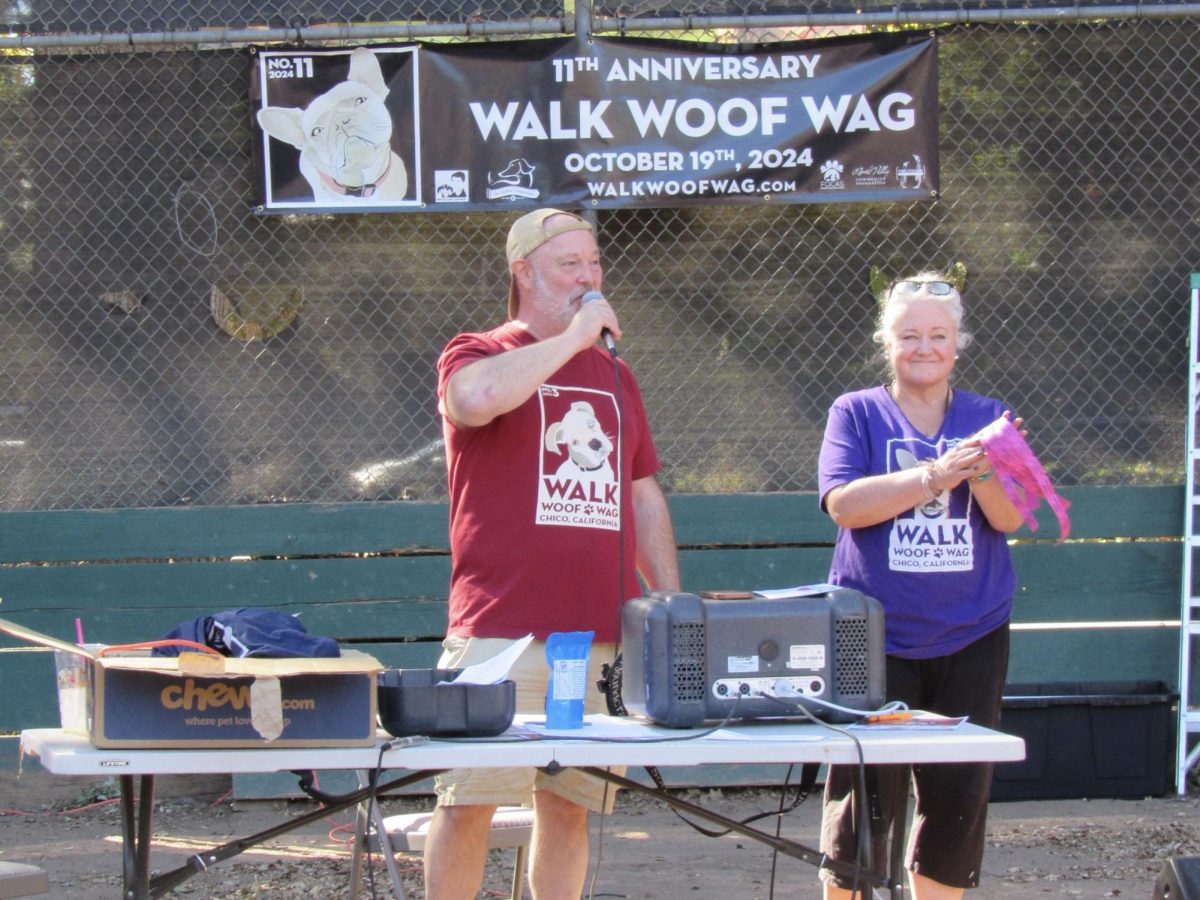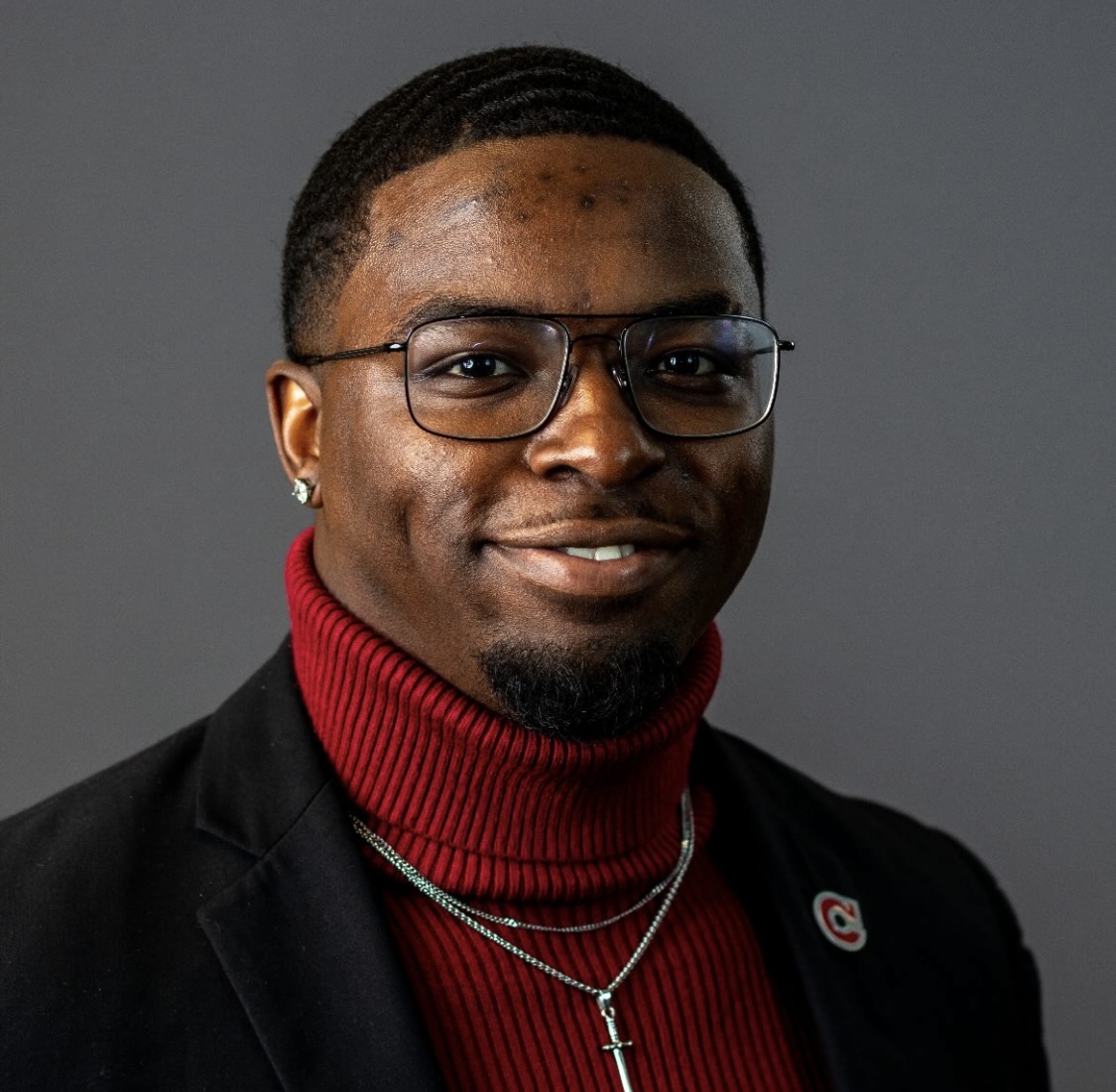[metaslider id=36600]
Photographs by Emily Conroy
The radiant sun on an 80 degree Friday illuminated the proud and smiling faces of those honoring the truth they’ve revealed to themselves and the world. They grab their signs of support and eagerly march on to voice the acceptance they’ve felt and want to bestow to others.
The Gender & Sexuality Equity Center’s Pride March followed Queer Week, with the purpose to “educate students and members of the Chico community on queer issues and show support for the LGBTQ+ community,” according to the GSEC’s website.
At the end of the week, the LGBTQ+ community celebrated National Coming Out Day. This day celebrates coming out as a lesbian, gay, bisexual, transgender, queer or as an ally. Whether it is for the first time or in remembrance of the first time, National Coming Out Day is a day to honor those who chose to open up about themselves.
In observance of National Coming Out Day, several students opened up about coming out.
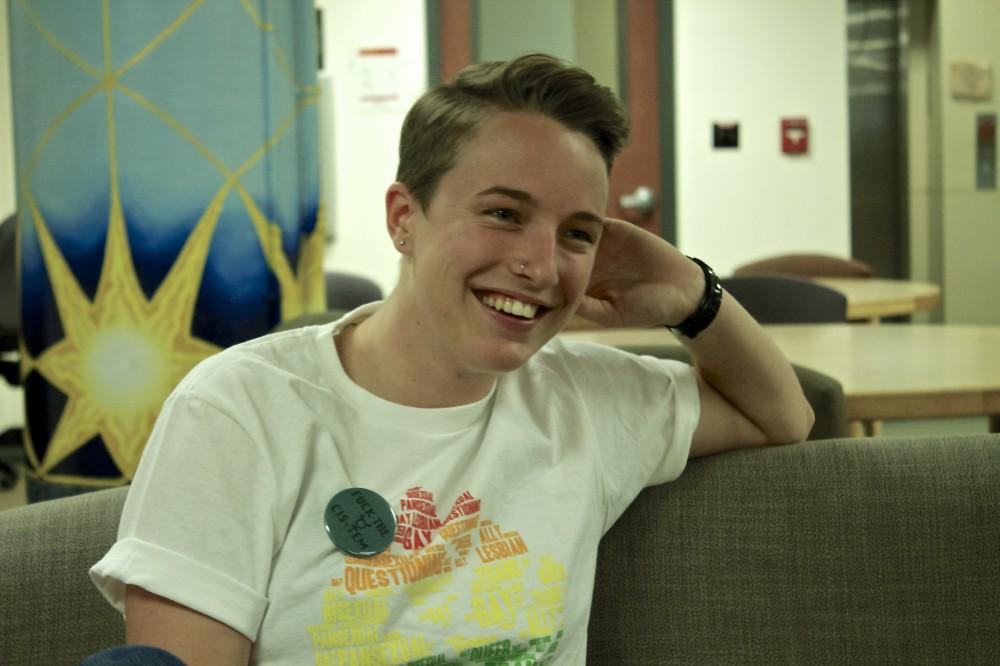
Taylor Holmes, a junior women’s studies major, shares how she came out during her freshman year at Chico State.
“I first came out to my roommate in the dorms; she also identifies as gay,” she said. “At first I was like, ‘Hey I’m having all these feelings (and) I really don’t know what they’re about.’ And she was the first person to make me feel comfortable about discussing (it).”
After talking to her friends in the dorms, Holmes revealed the truth to her parents.
“A couple months later, I came out to my parents,” she said. “Now I’m pretty much out to everyone. I don’t really talk to my parents much anymore, since coming out. But we’re working on it. We’re still in communication but as far as discussing my sexual orientation is off the table.”
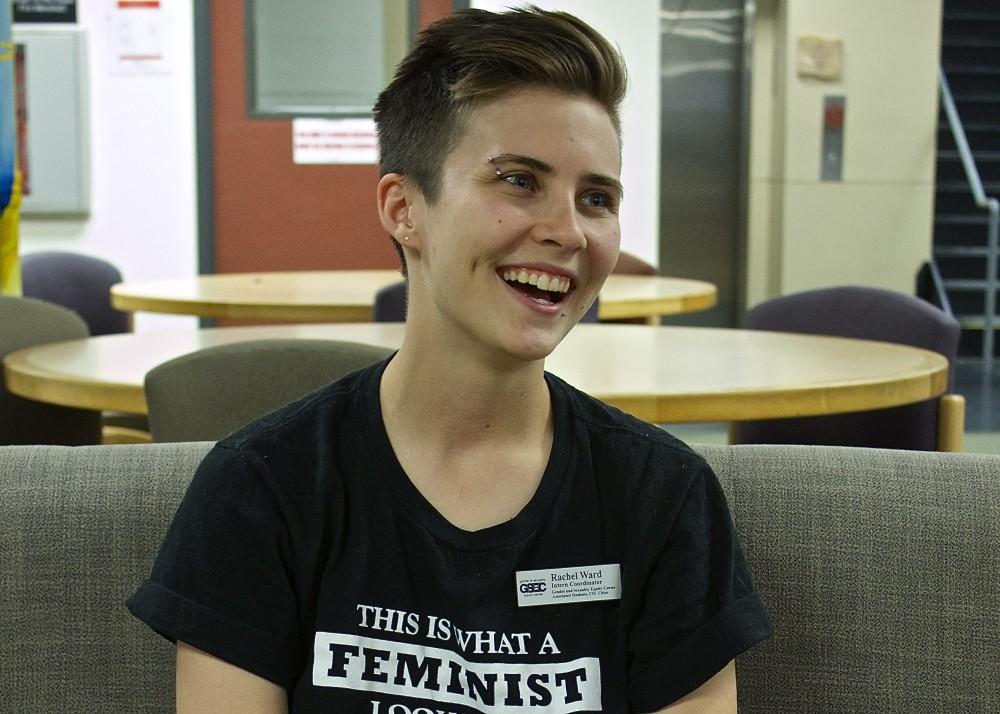
Rachel Ward, a sophomore double majoring in business administration and women’s studies and intern coordinator at the GSEC, said that people had already guessed her sexual orientation before she officially came out to her friends and family.
“I was 12 or 13 when I came out to myself,” she said. “I didn’t come out intentionally. (When I was 14,) my mom found out by looking through my phone and supposedly saw a picture of me kissing my girlfriend, but I had no pictures (like that) so I don’t know what she saw.”
Once her mom said she had seen the pictures, things slowly started to fall into place, Ward said.
“I had (my girlfriend) over one night and we were looking up at the stars and that’s when my mom put two and two together,” she said. “She told my dad that night and he was like, ‘Wake up and smell the roses. It’s kind of obvious.’ By that time I had already transitioned into less feminine clothing and my hair was already chopped off so it wasn’t much of a surprise to anyone.”
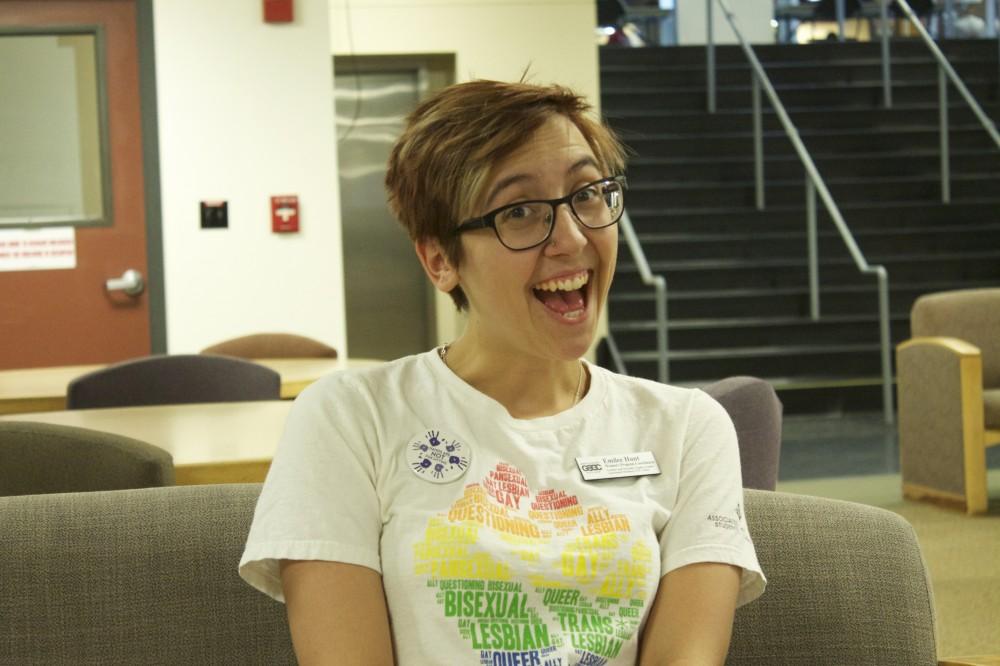
Emilee Hunt, a junior women’s studies major and women’s program coordinator at the GSEC, said that coming out to friends and family wasn’t easy, but has gotten better over time.
“Coming out is a process, it just doesn’t happen once,” she said. “I started the process when I was 15 or 16 and (came out) to my friends. The ‘mean girls’ at school found out about it and I knew it would get back to my mom because it was a small community. My mom is conservative, right-wing (and) religious. She asked me and she panicked.”
When her mom found out about how she identified, their relationship drastically changed, Hunt said.
“We were best friends and kind of ruined our relationship,” she said. “My dad and I weren’t close at the time (and) I found out that he was the reason I was kicked out of the house. When I moved and (came) to college, things have progressively gotten better. My mom and I are super close again and she’ll ask me about partners now.”
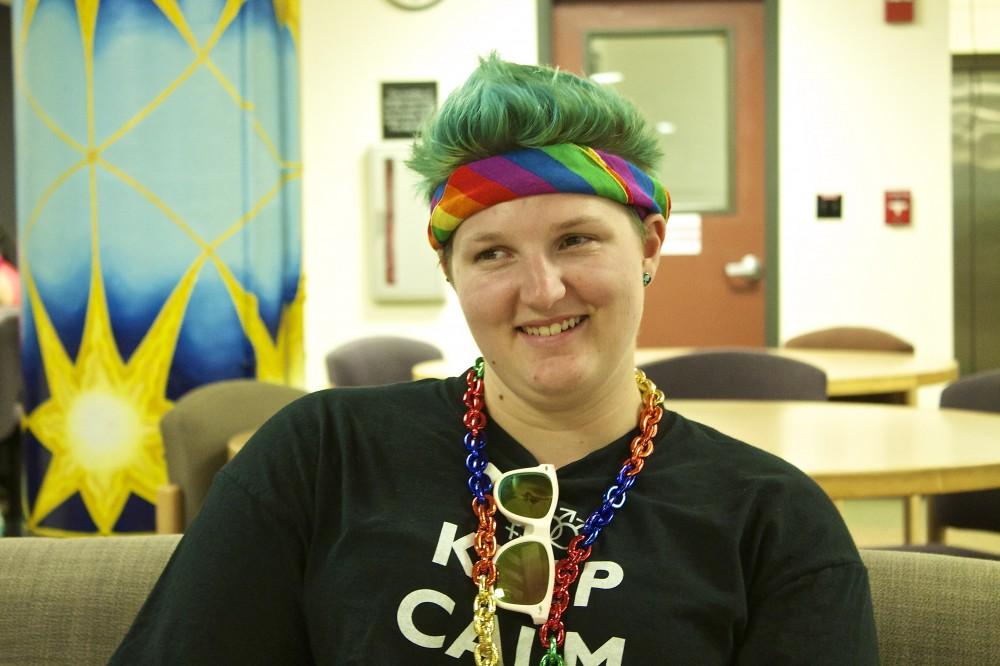
Taylor Zampini, a junior criminal justice major, had already come out to some of her friends but telling texts messages tipped off her mother.
“I came out to myself and to my best friend in seventh grade,” she said. “Then only a few friends knew in high school. My mom outed me my junior year (in high school) when she read my text messages and I denied it. I went back into denial for a year until I wanted to cut my hair short. My mom asked me if I was gay and I said, ‘Yes.'”
Once Zampini admitted that she is gay, her mom explained how she knew all along.
“She said that she’s always known but wanted me to be girly,” she said. “She thinks that I dress the way I (do) because it’s stereotypical lesbian but it’s not. It’s just what I’m comfortable with. My dad’s side of the family thinks it’s a phase and don’t really support it. My dad’s come around now. It’s ‘don’t ask, don’t talk about it,’ but I’d rather have him in my life and not talk about it than him not being in my life.”
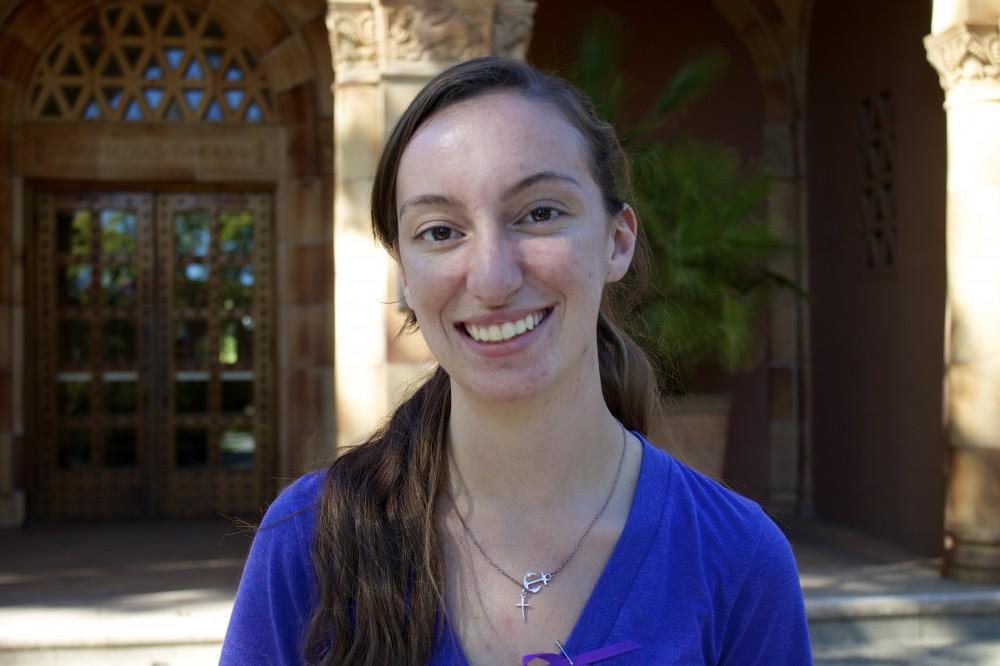
Rachel Schmit, a senior public relations major and intern at the GSEC, said she struggled with her sexuality conflicting with her religious upbringing.
“About two years ago, I was really trying to figure out who I was,” she said. “I now identify as questioning. Voicing my struggle with whether I identified with straight or not was my problem. I have a Christian background and I was really feeling bitter towards it because I was having very big sexual identity questions.”
After failing to find answers, she took a trip where she met someone who understood her dilemma.
“While I was at a Christian spring break trip, I was really working on figuring out who God was to me,” Schmit said. “In my attempts to figure out who God was to me, I kept hitting a wall. I kept thinking, ‘What is this wall?’ Then I was like, ‘I need to just be honest with myself.’ When I finally spoke to leaders on the trip about what I was struggling with, I found that someone in my Christian community was openly gay.”
After finding someone to talk with about her feelings, she realized her faith shouldn’t hinder her from the life she wanted, she said.
“This was my first positive interaction with Christians and my sexuality,” Schmit said. “It came with this huge freedom. I realized, ‘Oh my gosh, I can still figure out who God is to me and identify as this.’ I think that a lot of times people who identify in the LGBTQ+ community think that that is not an option for them because there is so much hate spewed from the Christian community. But there are beautiful, strong, solid Christians who in their faith do love and accept everyone in the LGBTQ+ community.”
Schmit said her religion and sexuality, no matter the preference, should support each other.
“Sexuality is a spectrum and so is belief in God,” she said. “I think that it is important to build a bridge between Christian communities and LGBTQ+ communities.”
Amanda Rhine and Michaela Sundholm can be reached at [email protected] or @am_rhine or Michaela_Sun on Twitter.




